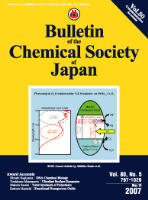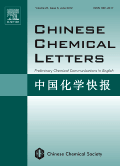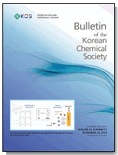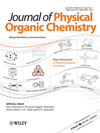
PROGRESS IN REACTION KINETICS AND MECHANISM
metrics 2024
Pioneering Research in Physical Chemistry
Introduction
Progress in Reaction Kinetics and Mechanism is a distinguished academic journal published by SAGE Publications Ltd, focusing on the intricate dynamics of reaction kinetics and mechanisms within the field of Physical and Theoretical Chemistry. With an ISSN of 1468-6783 and an E-ISSN of 1471-406X, this journal serves as a critical platform for researchers and practitioners seeking to explore and disseminate cutting-edge findings from 1999 to 2024. Although currently not categorized as Open Access, the journal maintains a competitive profile with a Q4 categorization in its field, showcasing its commitment to fostering scientific dialogue and inquiry. The journal ranks #140 out of 189 in its category, reflecting its integral role in advancing knowledge and understanding in chemistry. Scholars, professionals, and students who aim to stay at the forefront of research in reaction kinetics will find valuable insights and findings in this esteemed publication.
Metrics 2024
 0.25
0.25 2.10
2.10 0.90
0.90 27
27Metrics History
Rank 2024
Scopus
IF (Web Of Science)
JCI (Web Of Science)
Quartile History
Similar Journals

BULLETIN OF THE CHEMICAL SOCIETY OF JAPAN
Illuminating Pathways: The Heartbeat of Chemical ResearchBULLETIN OF THE CHEMICAL SOCIETY OF JAPAN, published by the esteemed Chemical Society of Japan, serves as a pivotal platform for the dissemination of cutting-edge research in the multifaceted field of chemistry. With an ISSN of 0009-2673 and an E-ISSN of 1348-0634, this journal has been integral in fostering the growth of chemical sciences globally since its inception in 1965. The journal holds an impressive Q2 ranking in the Chemistry (miscellaneous) category, indicating its relevance and influence within the academic community, as reflected by its Scopus rank of #104/408, placing it in the 74th percentile. Although it is not an open-access journal, its rich content, which spans a wide range of topics in general chemistry, remains highly valued by researchers, professionals, and students alike, affirming its crucial role in advancing both theoretical knowledge and practical applications in chemistry. As it converges towards 2024, the bulletin continues to uphold its commitment to excellence in scientific communication and research dissemination in Japan and beyond.

DOKLADY PHYSICAL CHEMISTRY
Elevating Knowledge in Physical and Theoretical ChemistryDOKLADY PHYSICAL CHEMISTRY is a prominent peer-reviewed journal published by MAIK NAUKA/INTERPERIODICA/SPRINGER, focusing on advancements and research in the field of Physical and Theoretical Chemistry. With the ISSN 0012-5016 and E-ISSN 1608-3121, this journal serves as a vital platform for researchers and practitioners to disseminate their findings and insights from 1996 to the present. Despite its current Q4 ranking in the 2023 category of Physical and Theoretical Chemistry, the journal has shown significant potential for visibility and engagement within the academic community, ranking #149 out of 189 in its respective field according to Scopus metrics, highlighting its dedicated readership. While the journal is not open access, it remains an essential resource for those seeking in-depth research articles, reviews, and commentary within this dynamic discipline. As the field continues to evolve, DOKLADY PHYSICAL CHEMISTRY plays a crucial role in fostering scientific dialogue and collaboration among researchers, professionals, and students worldwide.

STRUCTURAL CHEMISTRY
Unveiling the Mysteries of Molecular ArchitectureSTRUCTURAL CHEMISTRY is a premier journal published by SPRINGER/PLENUM PUBLISHERS, dedicated to advancing the study and understanding of the structural aspects of chemistry. With an ISSN of 1040-0400 and an E-ISSN of 1572-9001, this journal serves as a critical resource for researchers and professionals engaged in the fields of Condensed Matter Physics and Physical and Theoretical Chemistry. Since its inception in 1990, it has become an essential platform for disseminating high-quality research, featuring articles that explore innovative methodologies, experimental techniques, and theoretical frameworks. As evidenced by its Scopus rankings, including #192 in Condensed Matter Physics and #101 in Physical and Theoretical Chemistry, the journal occupies a respected position within the academic community, promoting interdisciplinary collaboration and insight. While it operates on a traditional subscription model, the journal continues to broaden its reach to foster knowledge exchange among scholars worldwide. With a commitment to excellence and relevance, STRUCTURAL CHEMISTRY remains a vital contributor to the scientific dialogue surrounding chemical structure and its myriad implications across various scientific disciplines.

CHINESE CHEMICAL LETTERS
Advancing Knowledge, Shaping the Future of Chemistry.CHINESE CHEMICAL LETTERS, published by Elsevier Science Inc, is a premier journal in the field of chemistry, notably recognized for its focus on innovative research in multidisciplinary areas of the discipline. With its ISSN 1001-8417 and E-ISSN 1878-5964, this journal has established itself as a valuable resource for academics since its inception in 1996, with coverage extending to 2024. Categorized in the top tier (Q1) for Chemistry (miscellaneous), it ranks an impressive #37 out of 408 in Scopus's General Chemistry category, reflecting its significant influence and contribution to the field, with a remarkable 91st percentile ranking. Though it does not currently offer open access, CHINESE CHEMICAL LETTERS remains accessible to researchers through institutional subscriptions and provides crucial insights and advancements in chemical research, making it an essential publication for professionals and students aiming to stay at the forefront of chemical sciences.

Computational and Theoretical Chemistry
Innovative Solutions for Complex Chemical ChallengesComputational and Theoretical Chemistry, published by ELSEVIER, stands at the forefront of interdisciplinary research in the realms of computational chemistry, theoretical physics, and biochemistry. With its ISSN 2210-271X and E-ISSN 1872-7999, the journal has established a significant presence in the academic community since its inception. Covering innovative computational methodologies and theoretical advancements, it addresses critical issues in condensed matter physics and molecular biochemistry, providing a rich resource for scholars and industry professionals alike. The journal enjoys a respectable impact factor and ranks notably in several Scopus categories, making it a vital platform for disseminating high-quality research. It adopts an open-access model, facilitating wider readership and engagement, which is essential for fostering collaborative innovations in the scientific landscape. As it continues to evolve from 2011 to 2024, Computational and Theoretical Chemistry is committed to advancing knowledge and promoting insightful discussions within the scientific community.

BULLETIN OF THE KOREAN CHEMICAL SOCIETY
Unveiling innovative research in the heart of chemistry.BULLETIN OF THE KOREAN CHEMICAL SOCIETY, published by WILEY-V C H VERLAG GMBH, is a prominent journal in the field of chemistry, with a specific emphasis on miscellaneous chemical research. With an ISSN of 0253-2964 and E-ISSN 1229-5949, this journal serves as a pivotal platform for researchers, professionals, and students who are eager to showcase innovative studies that address both foundational and emerging topics in the discipline. Boasting a commendable Q2 ranking in the 2023 chemistry quartiles, the journal ranks within the top 50th percentile in Scopus, reflecting its commitment to high-quality scientific discourse. The content published within its pages from 1996 to 2024 covers a vast array of subjects, ensuring a multidisciplinary approach to chemical research. The journal’s impact in the academic community is underscored by its accessibility to a global audience, making it an essential resource for those wishing to stay at the forefront of chemical advancements.

JOURNAL OF MATHEMATICAL CHEMISTRY
Fostering Interdisciplinary Collaboration in Mathematical ChemistryJOURNAL OF MATHEMATICAL CHEMISTRY is a prominent peer-reviewed journal published by Springer, dedicated to the field of mathematical chemistry. With an established history dating back to 1987, this journal serves as a vital platform for researchers to disseminate innovative findings and methodologies that combine the principles of mathematics with chemical science. Currently, it holds a commendable impact factor and ranks in the Q2 category for both applied mathematics and miscellaneous chemistry in 2023, showcasing its influence within these disciplines. The journal is indexed under Scopus, with notable rankings that place it in the top quartile among related works, ensuring high visibility and academic rigor. While access to its content is not open, the journal maintains a dedicated readership of professionals, researchers, and students eager to explore the computational and theoretical aspects of chemistry. The JOURNAL OF MATHEMATICAL CHEMISTRY continues to enrich the scientific community by fostering interdisciplinary collaboration and advancing quantitative approaches in chemical research.

Central European Journal of Energetic Materials
Advancing the Frontiers of Energetic MaterialsWelcome to the Central European Journal of Energetic Materials, a distinguished publication in the field of energetic materials, published by the INST INDUSTRIAL ORGANIC CHEMISTRY in Poland. This journal, with ISSN 1733-7178, has been a vital platform for researchers since its inception in 2009, promoting the latest advancements and discoveries in the dynamic fields of Materials Chemistry and Organic Chemistry. With an admirable presence in the academic community, it boasts a Q3 ranking in Materials Chemistry and a Q4 ranking in Organic Chemistry for 2023, showcasing its contribution to foundational research despite competitive challenges. Researchers looking to disseminate their findings will find this journal a reputable venue, supported by rigorous peer-review processes and a commitment to open dialogue within the scientific community. The journal is pivotal for academics, professionals, and students interested in the synthesis, characterization, and application of energetic materials, making it a notable resource for understanding the complexities and innovations within this specialized domain.

JOURNAL OF PHYSICAL ORGANIC CHEMISTRY
Fostering collaboration in organic and physical sciences.JOURNAL OF PHYSICAL ORGANIC CHEMISTRY, published by Wiley, serves as a vital platform for researchers and professionals in the fields of organic and physical theoretical chemistry. With a rich history of publication dating back to 1988 and continuing through 2024, this esteemed journal aims to advance the understanding of the physical principles underlying organic reactions and processes. Although it operates without an open access model, the journal maintains a respectable impact factor and has achieved Q3 rankings in both Organic Chemistry and Physical and Theoretical Chemistry as of 2023, affirming its relevance within the scientific community. Researchers looking to publish innovative studies will find a competitive space given its Scopus rankings—placed at #105 in Physical and Theoretical Chemistry and #123 in Organic Chemistry. The journal not only curates high-quality research but also encourages collaboration and the exchange of ideas, making it a cornerstone for anyone dedicated to exploring the complexities of organic materials and their physical interactions.

THEORETICAL CHEMISTRY ACCOUNTS
Empowering Researchers with Open Access to Theoretical BreakthroughsTHEORETICAL CHEMISTRY ACCOUNTS is a prestigious journal dedicated to promoting the advancement of theoretical and computational chemistry. Published by Springer, this journal has become a vital resource for researchers, professionals, and students seeking to explore innovative theoretical approaches in chemistry since its inception in 1996. With a current impact factor positioning it in the Q3 category of Physical and Theoretical Chemistry, it underscores its importance in the academic landscape, ranking 113 out of 189 in its field according to Scopus. The journal embraces an Open Access model, making cutting-edge research widely accessible to the global community. Researchers are encouraged to submit their latest findings and theoretical advancements, contributing to the ever-expanding body of knowledge within this dynamic field. Addressing contemporary challenges and breakthroughs, THEORETICAL CHEMISTRY ACCOUNTS serves as an essential platform for dialogue and discovery among scholars dedicated to the intersection of chemistry and theory.